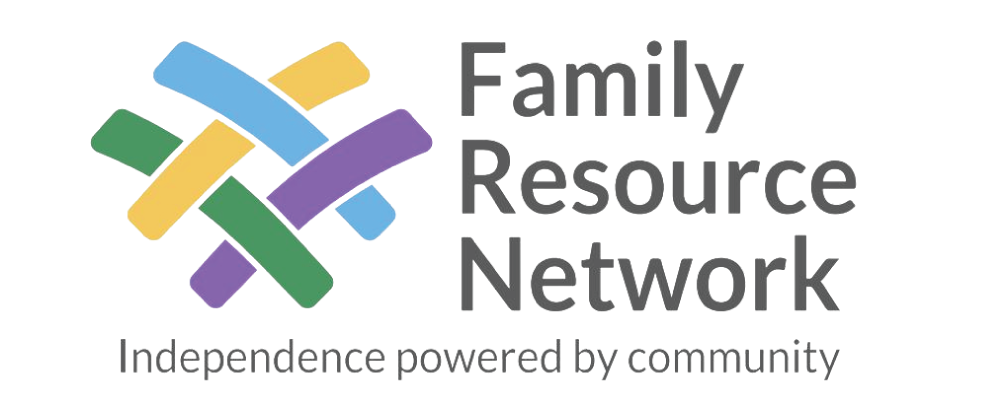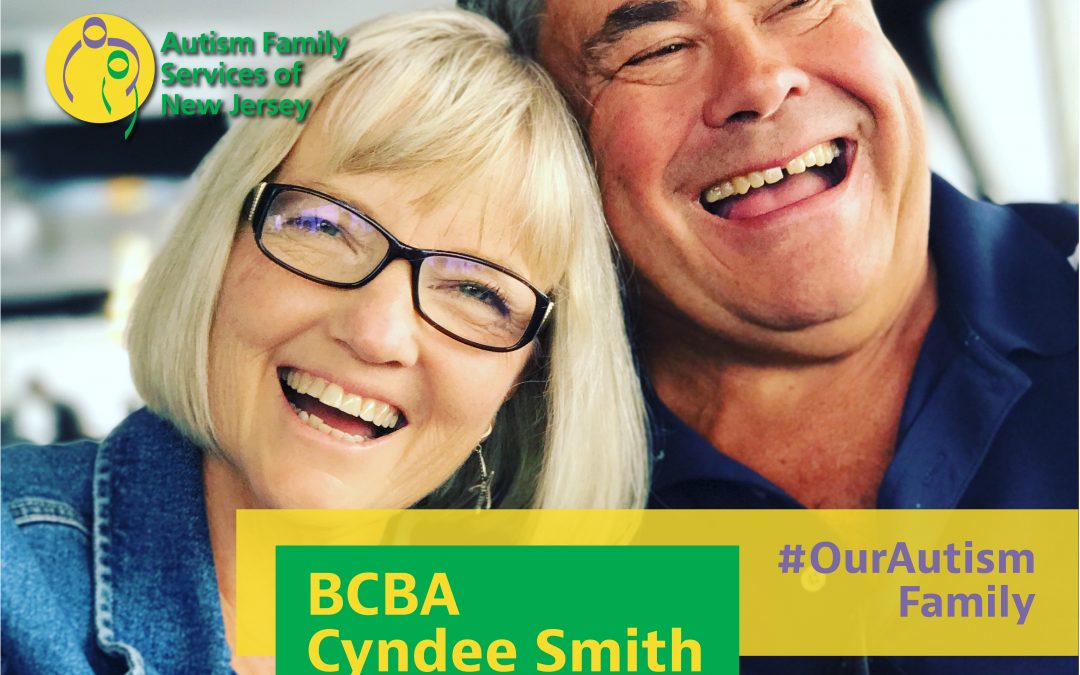Meet Cyndee. Cyndee is one of our Board Certified Behavior Analysts (BCBA) at Autism Family Services of New Jersey that is part of our Applied Behavioral Analysis Therapy Program for childen with Autism. We have been lucky enough to have Cyndee be part of our family at AFSNJ for 15 years demonstrating exceptional dedication and passion in every ounce of her work. We spoke with her to get her story:
“My desire to work with children was ignited by helping my father, who was the Director of Special Education in Hazlet, during Special Olympics activities. I left to go to college in California but returned and obtained a BA in Psychology at Rutgers in New Jersey. During that time, I got married and had three children. I began working with individuals with autism and other developmental disabilities and continued with this vocation for the next 25 years. My career started with running a family daycare. I became a certified special education teacher and began teaching students with autism, while providing direction for in-home ABA services. I soon also began working as a program leader in The Family Resource Network’s afterschool program, Kidz Korner. I later entered and finished a graduate program for ABA at Georgian Court University and sat for the BCBA boards and passed. I then worked with staff at The Family Resource Network to develop our behavioral services unit.”
When I began my career working with youth with autism there were no programs available to obtain BCBA certification in New Jersey. Through advocacy, those programs and the demand for certified behavior analysts grew. To serve my families in the best capacity that I could obtaining the credential became essential. The graduate program that I participated in gave me the opportunity to grow my informational base and to become a more informed and experienced professional.
A BCBA works with a variety of individuals with varied abilities and behavioral concerns. We are often the place caregivers and other professionals go to when they are at a loss with how to help a child. We seek to identify why an individual is engaging in aggression, self-injury or property destruction. We are responsible for identifying the “why” (function) of the challenging behavior and to develop a plan to work to diminish or eliminate the challenging behavior. BCBAs use the principles of Applied Behavioral Analysis (ABA) to accomplish many kinds of tasks.
ABA Therapy is often described as the “gold standard” for autism treatment. Behavior analysis helps us to understand how behavior works, how behavior is affected by the environment and how learning takes place. The goal is to increase behaviors that are helpful and to decrease behaviors that are harmful or that can affect learning. ABA therapy programs can help increase language and communication skills, improve attention, focus, social skills, memory and academics and decrease problem behaviors through the use of visual supports, token economies, stimulus pairing and behavior skills training for staff and caregivers.
Intensive In-Home services (IIH) is a clinical intervention that is focused on using applied behavioral analysis to address the behavioral and other issues youth are encountering. This includes an Initial Functional Behavior Analysis by a BCBA. The BCBA conducts an assessment to determine the function of the challenging behaviors and then develops a Behavior Support Plan to systematically reduce the rates of challenging behaviors and to enable youth to develop replacement behaviors.
Intensive In-Community Services (IIC) is a clinical intervention that focuses on counseling youth. The providers backgrounds are in social work and counseling. The interventions focus on engagement of the youth and family, psychoeducation, and skill building toward prioritized goals in youth and family to assist families in gaining insight and to ultimately feel better and to function better.
The biggest challenge in being a BCBA is to successfully train and to empower caregivers to implement strategies consistently and correctly. Families must be in the trenches 24 hours a day 7 days a week. A BCBA needs to develop a Behavior Support Plan (BSP) that works for the family. A good BCBA keeps in mind what is reasonable to expect a family to carry out. The biggest struggle is to always be a good BCBA no matter what barriers arise.
My favorite part of being a BCBA is having the opportunity to make a real difference in the lives of my clients and their families. There is nothing more gratifying than helping a child to find his or her voice or to learn to control his or her emotions. As a BCBA I can open doors that have been closed to individuals with autism and their families.
My favorite story to tell is a success story for a boy I will call Ben. When I began working with Ben, he was non-verbal and would bang his head in frustration. He was two years old when I was one of a team of professionals working with Ben. I worked with Ben until he was in high school. Ben learned to talk and was able to transition into a regular third grade public school class. Ben was accepted and graduated from Stockton college and has gone on to work in the advertising department for a major baseball league team.
Success stories come in all shapes and sizes. I have never witnessed a bigger smile than the one ten-year-old Sarah had when she was able to communicate using her talker for the first time. It opened up her world.
Families should seek ABA services for their child with autism because children with autism deserve ABA. There is more scientific evidence demonstrating that ABA “works” than there is for any other intervention or treatment. ABA helps parents be the best parents they can be and provides a road map for parents through parent training. It will help a child find his or her voice whether it is a vocal one or an augmented one through augmentative communication. But the most important reason to provide ABA for a child with autism is because it capitalizes on the child’s strengths and addresses the child’s weaknesses without imposing a ceiling to how high the child can go.
Families whose child has been diagnosed with autism should seek ABA services. The services should be intensive and consistent. In this case more is better. Research indicates that with autism the more consistent and intensive the services are the better the outcome. Families should value the strengths and characteristics of their child no matter what. Children do shine in their own way.

